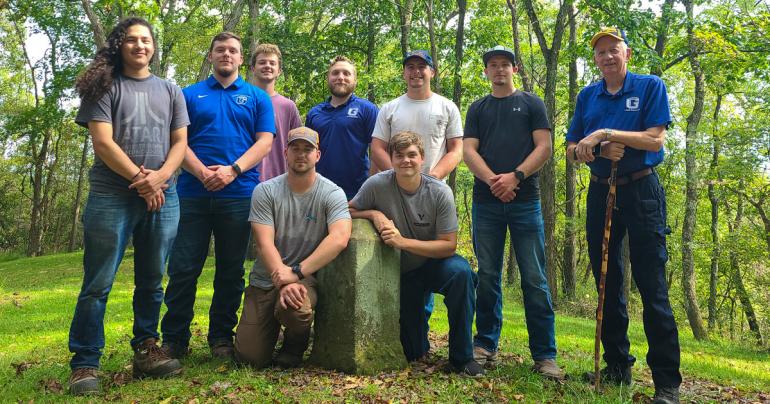
FOR IMMEDIATE RELEASE: December 15, 2022
For More Information:
Glenville State University
Public Relations & Marketing
(304) 462-4115
GLENVILLE, WV – Earlier in the fall semester, Glenville State University students in the Hydrology, Drainage, and Subdivision Design course (LAND 335) within the Department of Land Resources made several off-campus visits designed to further their understanding of concepts being learned in the classroom.
Led by Lecturer of Land Surveying Jacob Petry and Professor Emeritus Rick Sypolt, the students first visited two Natural Resources Conservation Service (NRCS) ponds. Students in the course use methods similar to those of the NRCS when designing culverts and spillways for large bodies of water.
Next, at the West Virginia Geological and Economic Survey office in Morgantown, students learned how to obtain historical mapping data, toured a fossil museum, and viewed a model drilling rig similar to those used for gas extraction throughout West Virginia.
At the final stop in Monongalia County, the group hiked to the “terminal point” of the Mason-Dixon line, located on Brown’s Hill. Charles Mason and Jeremiah Dixon established the point during their 1767 survey along what is now the state boundary between West Virginia and Pennsylvania.
“Mr. Sypolt frequently made this trip during his tenure at Glenville State, and it was nice to continue the tradition. The Mason-Dixon line is astronomically (pun intended) important to surveyors in West Virginia, and we like for the students to see it and learn about its history,” Petry said.
For more information about the programs within the Department of Land Resources at Glenville State University, contact the Department of Land Resources at Land.Resources@glenville.edu or (304) 462-6370.

